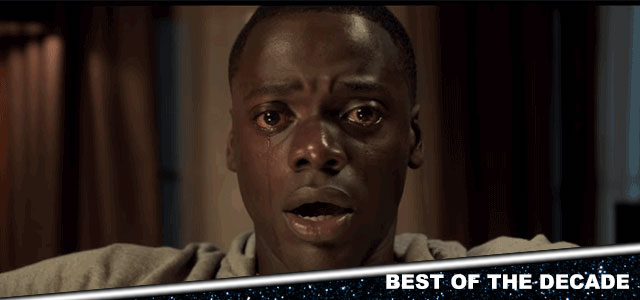
Amazingly, we're at the end of yet another decade, meaning it's 10 years since James Cameron's Avatar closed the noughties in spectacular style and ushered in a new reigning box office champ. (At least, until this year's Avengers: Endgame toppled it.)
The preceding 10 years have of course been marked with highs and lows, but as digital editor for Cineworld, I'm here to talk about cinema. And what a decade of cinema it's been, full of boundary-pushing, screen-filling wonder that inspires, excites, frightens and repels. I've therefore compiled my list of my favourite films from that period, casting a nostalgic look backwards even as I anticipate what may be coming in the future.
Hand on heart: the following list will likely infuriate and anger you owing to what's been left out. But then that's kind of inevitable – how can you compress so many years of remarkable movies without making difficult sacrifices? And there's nothing wrong with being annoyed at a listicle – that shows you're passionate about the subject, right? Also bear in mind, these are my favourite films of the period, which may not necessarily equate to 'best'.
This isn't about locating technically or narratively flawless movies (although, of course, you're welcome to view each entrant as such). Rather, I've selected and ranked each of the following based on the emotional impact they've had on me. In my opinion, each of these films offer a powerful, intravenous shot of what makes movie-going so sublime, crafting memories and emotional moods that will last a lifetime.
10. A Separation (2011)
Iranian cinema has come into its own during the past decade, notably with the likes of Babak Anvari's brilliantly creepy ghost story Under the Shadow. Leading the charge in 2011 was the formidable A Separation, from one of the country's most renowned filmmakers, Asghar Farhadi.
The set-up is best described as a 'domestic thriller', observing the intricacies and nuances of life in Tehran while calmly observing the snowballing fallout from an apparently innocent misunderstanding. Leila Hatami is tremendous as Simin, a woman filing for divorce after her husband Nader (Peyman Moaadi) refuses to leave the country in order so their daughter Termeh (Sarina Farhadi) can have a better life.
Nader's elderly father suffers from dementia, so Simin hires a deeply religious young nurse named Razieh (Sareh Bayet), Soon overwhelmed by the demands of the job, on which she and her daughter are relying for financial survival, Razieh commits a transgression, completely unintentionally, that spirals into chaos and sucks more people into its orbit. Farhadi's steadily observant camerawork is akin to a passive spectator – we the audience are helpless at watching the members of this family, each possessed of their own dreams and also flaws, from splintering even further.
The air of escalating tension and sense of voyeurism owes a clear debt to Alfred Hitchcock, as does the fact that most of the action takes place in a single apartment, akin to his 1954 masterpiece Rear Window. Apparently minor moments ripple across the remainder of the narrative, such as an outwardly unassuming call by Razieh to her imam, which turns out to be devastating.
Largely devoid of incidental music (or, at least, melodramatic cues), with plenty to say about gender roles and thwarted ambitions, this is an engrossingly acted masterpiece that secured Farhadi's international reputation. Oscar nominated for Best Original Screenplay, and grossing over $24 million worldwide against a slim $800,000 budget, it's a film that enthralls and troubles in equal measure.
9. Leave No Trace (2018)
Writer-director Debra Granik elevated Jennifer Lawrence, pre-Hunger Games, to stardom with gritty Ozark mountains drama Winter's Bone in 2010. It was then eight long years until Granik made her long-awaited return to cinemas with Leave No Trace, and the end result was an emotionally resonant masterclass in quiet character building.
Granik adapts Peter Rock's book 'My Abandonment' but infuses plenty of the earthy atmospherics familiar from Winter's Bone. Like the earlier movie, this is a drama that practically invites the audience to breathe in the pungency, humidity, cold and warmth of its exterior locations, allowing us to feel the soil underfoot and the rain pattering down through the leaves.
The forest environment of America's northwest has become home to father and daughter Will (Ben Foster) and Tom (Jojo Rabbit's Thomasin McKenzie). Will is an Iraq war veteran suffering from PTSD, who has taken his child off-grid to live a sustainable lifestyle devoid of the trappings of modern consumerism. Yet despite her absence of a formal education, Tom is growing up to be a well-balanced, intelligent young woman, whose emotional growth and knowledge is encouraged by her father. This is complicated when the two are inadvertently discovered by a rambler, putting them in the sights of the authorities who desire them to integrate into 'normal' society.
There are overtones of the Viggo Mortensen movie Captain Fantastic, but this is infinitely superior, largely because Granik never stoops to emotional manipulation. She subverts our expectations and challenges stereotypes throughout, chiefly in the presentation of Tom as a bright and happy child who is at one with her itinerant lifestyle, but whose advance towards adolescence leads the story down devastating avenues.
The subtle splintering of this once inseparable father-daughter unit makes this a truly riveting experience, aided by the fantastic performances from Foster and McKenzie. The former, especially, is brilliant – Foster is known for playing cranks and psychos, but here he instead quietly embodies a man who has committed to a particular lifestyle, while knowing deep down that his beloved child may deserve better opportunities. That blurring of the film isn't rain water authentically dripping down the camera lens – it's your tears.
8. Moonlight (2016)
On some level, the exquisitely beautiful Moonlight is destined to be remembered as the film that 'stole' the Best Picture Oscar from La La Land, after that notorious Oscars envelope mishap involving Warren Beatty and Faye Dunaway. But truthfully, writer-director Barry Jenkins' lyrical and truthful movie transcends any been-there, gone-tomorrow awards chatter, such is the resonant nature of the story's themes, not to mention the achingly gorgeous nature of the film making itself.
Jenkins adapts the play 'In Moonlight Black Boys Look Blue' by Tarell Alvin McCraney, whose evocative title directly informs the aesthetic of the movie. Not so much swerving between three stages in the life of a young black gay man, so much as quietly eddying between them, the film is as entrancing as a shaft of light playing over the surface of the sea. There's also a generous sense of universality that extends beyond 'mere' boundaries of race and sexuality, Jenkins instead using the despairing and hopeful story of its central character to communicate with people from all walks of life, be they black, white, gay, straight, binary or something else entirely.
Jenkins' film owes a great debt to the legacy of silent cinema, casting superb actors who convey more pain and years of unspoken regret with a glance than many performers could do with 10 pages of dialogue. With its three-act exploration of one man's difficult life, the film is also a fascinating commentary on consciousness: at what point in our life does our personality cement and remain fixed? Or are we destined to evolve, ripple and change without ever spiritually setting in one place?
Like that elusive moonlight, hopes and dreams can shine brightly one minute before rudely vanishing the next. Thanks to excellent turns from the likes of Naomie Harris and an Oscar-winning Mahershala Ali, who was deservedly catapulted to megastardom in the wake of the film's success, the film is not only a sensory experience but an emotionally authentic one.
7. Inception (2010)
As far as contemporary directors go, Christopher Nolan is in an enviable (and highly deserved) position. In the noughties, he catapulted to critical acclaim with the likes of Memento and Insomnia, before the first two installments of his Batman trilogy, Batman Begins and The Dark Knight, added box office gold into the mix. Nolan has therefore emerged as a director revered by both critics and mass audiences, someone not afraid to put heady, complicated concepts in the service of jaw-dropping and thrilling blockbuster entertainment.
Little wonder he's had carte blanche to deliver increasingly ambitious projects throughout the most recent decade. The Dark Knight Rises (2012) concluded his revisionist Batman trilogy, re-authoring the world of the Caped Crusader as a grounded crime saga more akin to Michael Mann's Heat. Interstellar (2014), while overblown, vaulted into the heavens to the sound of Hans Zimmer's ecstatic score. And Dunkirk (2017) scrambled the timeline of one of World War II's most important rescue operations, adding philosophical intrigue to a nail-biting story of survival.
And yet his greatest achievement of the last 10 years remains Inception, the movie that cemented Nolan's populist yet brainy blockbuster philosophy beyond the needs of the Batman brand. Indeed, Nolan proved that he needn't enlist a famous comic book character in order to entice audiences with a layered, demanding story – this is an entirely original concept that seduced viewers to the tune of $800 million worldwide, for the simple reason that it's brilliantly constructed, visually bold, and conceptually daring.
Nolan dares for the audience to keep up, and such is our trust in him that we know it will pay off in the end. As our grey cells and our pulse rate get equal workouts, this story of latent mind espionage uses its interlocking environments to prove that big-budget epics can be possessed of a uniquely cerebral character. And yet, at the core of Inception's cerebrum is an affecting performance from Leonardo DiCaprio, another individual who has defined much recent cinema: here is a character who just wants to get back to his kids, reminding us that while Inception plays mind games, it's also a deeply humane experience.
6. The Social Network (2010)
Directed by David Fincher and written (to Oscar-winning effect) by Aaron Sorkin, The Social Network is a brilliant depiction of a zeitgeist moment in pop culture, of young, socially insecure men who cracked the code to 21st century communication. It's an elusive and difficult thing to pull off, yet Fincher, in collaboration with cinematographer Jeff Cronenweth and composers Trent Reznor and Atticus Ross, manages it.
This is evident right from the opening moments, where the newly dumped and seething Mark Zuckerburg (a career-best Jesse Eisenberg) cycles back to his Harvard apartment to launch the early platform of what will become Facebook. The calm camerawork operates brilliantly in tandem with the score, giving us a palpable sense of someone on the cusp of something, who will break beyond the privileged enclave of Harvard to define the world as we currently know it.
That the birth of Facebook, at least as the movie depicts it, stems from a socially awkward man making hideous comments about his newly ex-girlfriend, is also an indication that the movie refuses to sanctify Zuckerberg. There's a nice sense of detached cynicism throughout, as Fincher's Fight Club sensibilities smoothly harmonise with Sorkin's sardonic wit from The West Wing.
The early sense of anticipation follows a classic rise and fall structure, drinking in the euphoria felt by early social network pioneers (including Napster's Sean Parker, played by an excellent Justin Timberlake), and also the eventual litigation that forced Facebook's founders apart. Again, one senses the movie taking dramatic liberties with both the depiction of the events and the representation of Zuckerberg as an isolated figure seemingly more alien than human.
But the sharp sense of irony keeps us amused and entertained throughout – who knew that the guy who got us all following one another couldn't reach out to his loyal business partner, Eduardo Saverin? The latter is played by a terrific Andrew Garfield, whose emphatic sense of decency under corporate duress stops this being a dry technical exercise. Instead, Garfield's performance turns the movie into a warning about the perils of poor communication – a film that celebrates achievement while also unpicking its suspect motivations amidst an ever-changing digital landscape.
5. Toy Story 3 (2010)
The evolution of Disney-Pixar's movies over the last 10 years has been a joy to behold. The early days of Toy Story were conceptually ambitious enough, but this is a studio that have continued to up their game, both visually and narratively, while retaining that all-important hold on the emotions of people of all ages, from five to 105.
Pixar have taken us under the sea in Finding Nemo, into space with Wall-E, and into Mexico's land of the undead with the more recent Coco. The characters and locations don't owe much to one another, but they're all connected by a sincere desire to play on both our funnybones and heartstrings – after all, these are the guys who rendered a clownfish as a recognisably neurotic dad, and made us fall in love with a romance-stricken, trash-compacting robot from the not-too-distant future.
Picking Pixar's greatest achievement from the last decade is therefore very difficult, but in terms of being an emotionally complete experience, it has to be Toy Story 3. The film's success is many fold, not least because it achieves the impossible and makes the third installment of the trilogy the best of the lot – most crash out before they finish (look at The Godfather as an example), but this is a classic example of how to build on the groundwork of the preceding two movies, while staying loyal to their spirit.
It's also a sign of how brilliantly Pixar understand their audience. Those who remember seeing the first Toy Story in the cinema in 1995 would have been young adults by the time the third movie rolled around, and the film incorporates themes of ageing and obsolescence brilliantly, showing how toy owner Andy's physical bond with his former friends must change, even if the emotional connection is everlasting.
It goes without saying that the animation is gorgeous and the set-pieces consistently, riotously funny. The addition of Michael Keaton as Ken, a 'Freak Out'-scored, vain clothes horse is a superb move, and the late arrival of Spanish-accented Buzz Lightyear (ordinarily voiced by Tim Allen) is one of the most hilarious scenes in Pixar's canon. Yet it's the film's profound ability to invest plastic companions with human emotions that makes this last long in the memory. That ending scene is up there with It's a Wonderful Life as, arguably, the greatest in cinema history.
4. Get Out (2017)
From one half of the Key & Peele comedy duo to horror-comedy director extraordinaire – the rise of Jordan Peele is one of the decade's most exciting success stories. Although he had directed prior to Get Out (he worked on the oddball Keanu with cohort Keegan-Michael Key), this was the first time Peele had gone it alone, and none of us had any idea what to expect.
The sheer confidence of Get Out elevates it into the upper echelons of this list. Put simply, this does not look, feel or sound like a movie from a relatively inexperienced director. The film's ambition, and its success in realising those ambitions, resonates from the story downwards, which is a sly commentary about racism that upends our expectations.
Instead of taking aim at soft targets like redneck hillbillies, Get Out brings pernicious prejudice into the affluent, seemingly benevolent homes of those white faces who glibly proclaim they'd have voted for Obama a third time. It's a melting pot of politics and enjoyably nasty wit that is designed to have viewers confronting their own worst impulses, and indeed the film ignited a myriad "I'm not racist, but..." conversations the world over.
Peele speaks with authority of the African-American experience, yet he's not about to club us over the head with a poorly executed lecture (despite the many individuals who do indeed suffer head injuries during the cathartic climactic massacre). Instead, he sneaks in grace notes of these disturbing themes within the context of a brilliantly entertaining chiller that makes us laugh and shiver, often in the course of the same scene.
Propelled by Michael Abels' sinister score, with vocals acting as a ghostly warning from deceased slaves, and grounded by a charismatic, star-making, Oscar-nominated Daniel Kaluuya, Get Out was the definition of say it loud, say it proud. In 2019, Peele went from this to the even more impressive Us, and it's thrilling to think of what he'll conjure up next.
3. We Need To Talk About Kevin (2011)
Scottish director Lynne Ramsay makes films infrequently, her most recent being 2018's moody You Were Never Really Here, starring a ferocious Joaquin Phoenix (a film that was clearly a big influence on Phoenix's Joker portrayal). That means whenever she does emerge, it's an experience worth savouring, and the horribly compelling We Need To Talk About Kevin certainly falls into that bracket.
This was Ramsay's first movie since 2002's Morvern Callar, and adapts Lionel Schriver's uncomfortable story of maternal guilt. Ditching the author's device of revealing the narrative through letters, Ramsay instead goes for an impressionistic approach, splintering time and splashing everything with gobs of garish red as a mother grapples with the legacy of her apparently psychotic son.
It is, on the one level, an interesting interrogation of genes, and the classic 'nature vs nurture' debate. Tilda Swinton's afflicted central character Eva was forced to give up her travel writing career when she discovered she was pregnant – so has her resentment over her thwarted dreams passed down via osmosis into her demon seed Kevin? It is, by intention, not an easy question to answer, but instead will surely needle new and established parents alike.
On the other hand, the movie has a grand guignol streak that plays up the conventions of classic 'evil child' movies like The Omen. It confronts that most horrid of subjects: what does a parent do when they're responsible for bringing a murderous psychopath into the world? Swinton's raw, emotionally flayed performance keeps us guessing as to Eva's mental state (one imagines this is all being filtered through her unreliable memories), and yet one glance at the brilliantly creepy Ezra Miller as the malicious Kevin makes us think she may be right.
Juxtaposing all manner of images, both euphoric (the opening Tomatina festival in Spain) and skin-crawling (the most disgusting consumption of a lychee ever seen), the movie is a textbook example of how images, sound, physical performance and music can propel us into dark areas, where we want to turn away but can't help watching to see what happens next.
2. Under the Skin (2014)
Like the aforementioned Lynne Ramsay, director Jonathan Glazer is an elusive figure, who emerges only occasionally to hop between (and implode from within) many different genres. In 2000, he turned Ben Kingsley's persona on its head to startling effect in crime drama Sexy Beast, and in 2004 he made Birth, an icy, odd and controversial story of grief and mourning with an apparent supernatural undercurrent.
It was another 10 years before Glazer delivered what is arguably his masterpiece. Under the Skin is adapted, albeit very loosely, from Michel Faber's novel about an alien in human form who comes down to planet Earth to harvest men. The novel has a satirical point to make about meat consumption, but the enticingly otherworldly atmosphere of the movie is something else altogether.
Put simply, this is the kind of captivating movie experience in which you have no idea where it's going, but you're certainly excited to be heading there. Under the Skin is less a narrative-driven story than an immersion in mood, by turns horrifying, surreal and darkly funny, in which visuals, sound design and Mica Levi's eerily juddering score offer a profound commentary about seeing the world through an alien's eyes. In that sense, it owes more to the groundbreaking work of Nic Roeg and David Lynch, refusing to explain itself and allowing the viewer to come up with a myriad interpretations – little wonder the movie split the crowds during its debut at the 2013 Venice Film Festival.
The casting of Scarlett Johansson as said alien (unnamed) is a work of genius that adds more potency to already rich material. The A-lister was sent incognito onto the streets of Glasgow in a van where, in character, she picked up men believing they had got lucky. All of these interactions were captured candid-camera style and interwoven into the movie, adding a quasi-documentary approach to the otherwise extraordinary explosions of surreal imagery, including the notorious room of oil and a Stanley Kubrick-esque opening scene that may depict... well, anything actually.
So what is the movie? A wry commentary about the unreachable Scarlett Johansson hiding in the midst of, and interacting with, 'normal' people? A voyeuristic statement about the odd angles and awkward limbs that make up our own bodies? A profound look at how the elusive nature of the soul, rather than the fleshy exterior, defines us? Or a sign that creatures from across the galaxy, be they human or otherwise, are bound by a sense of compassion and decency?
This last point is summed up in a remarkably tactile scene between Johansson and neurofibromatosis sufferer Adam Pearson – like everything else in this astonishing film, it compels you to look under the skin in search of what makes us human.
1. Boyhood (2014)
The late, revered film critic Roger Ebert, widely regarded as the finest the industry has ever known, described Mike Leigh's moving drama Another Year as "a long, purifying soak in empathy". Far be it from me to ride on Ebert's coattails, but I can think of no finer way of describing Richard Linklater's masterful exploration of the human condition, shot piecemeal over 12 years in a manner that blurs the lines between documentary and fictional drama.
The subject is Mason, whom we meet played by a young Ellar Coltrane in 2002 to the sound of Coldplay's 'Yellow'. It's the first sign of how magnificently Linklater is able to establish a sense of context via physical performance and music, two hallmarks that he's also demonstrated in his acclaimed 'Before' trilogy. Throughout the course of Boyhood, we remain with Coltrane's depiction of Mason, as he endures abusive step parents, moves to different schools, encounters first girlfriends and, eventually, makes a bid for independence with a move to college.
Linklaker's achievement is how he renders the banality of everyday life as its own kind of magical special effect. What we're essentially watching is the ageing process, the most universal thing on the planet, and it's not just applied to Mason. Linklater's daughter Lorelei plays Mason's sister, an Oscar-winning Patricia Arquette is his mother, struggling to keep her family afloat amid thwarted marriages and career ambitions, and Ethan Hawke is the absentee father who harbours vast reserves of wisdom.
Linklater's characteristically patient direction, skill with eliciting fine performances from his actors, and generosity of spirit in the writing, shines through. Any number of nuances resonate, from the amusingly cringey teen sex talk to the first bout of drunkenness to an impressively even-handed moment where the teenage Mason is given a rifle as a present by his grandparents. Linklater isn't in the game to be preachy or condescending, and nor does the movie feel like an awkward collection of bits shot over multiple years.
The story ultimately coheres very effectively, allowing us to recognise facets of ourselves in the central character, from the freewheeling irresponsibility of youth to the tentative emergence of skillsets (in Mason's case, photography) that may or may not define the course of our lives. It brilliantly balances light and shade – Arquette's final, emotional rant is commendably bitter and honest, no doubt reflecting many parents' experiences of an empty nest episode – while the soundtrack and pop culture landscape subtly morphs in the background.
At one point, we're privy to a Harry Potter book signing, while in the next scene the characters are picketing on behalf of Barack Obama. Mason's sister obnoxiously waking him up to Britney Spears' 'Oops I Did It Again' is juxtaposed with the famous Will Ferrell 'Landlord' sketch that did the rounds in 2005. Similarly, the music evolves too, moving from the aforementioned Coldplay to the Hives' 'Tick, Tick Boom' and, ultimately, the heart-wrenching lament of Family of the Year's 'Hero' (heard in the trailer) that embodies the film's theme of growing up.
It's that sense of emotional truth that keeps us riveted throughout. Those familiar with Linklater's work won't be surprised by this, but at the same time, it's hard not to be stunned by the scale of his achievement.
So, that's my list of the greatest films of the last decade, and as I said at the start, it was a difficult list to arrive at. Even as I type, I regret the myriad genres, actors, directors and screenwriters whose work I haven't been able to champion. Hopefully what that list does show is that the preceding 10 years was an incredibly rich and fertile time for new and established filmmakers alike, and I for one can only hope the next decade is as eventful, if not more so.
What were your favourite films from the last 10 years? Drop a tweet @Cineworld with your list.
Far from missing out on the best films over the coming years, you can sign up to Cineworld Unlimited and enjoy all of them, for a set monthly price. Not only that, you will even be able to watch many of them in advance with our special Cineworld Unlimited screenings. If that sounds good, then click here to join Cineworld Unlimited.
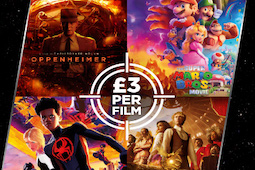
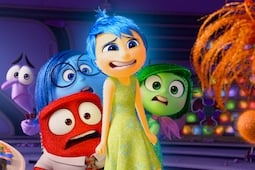
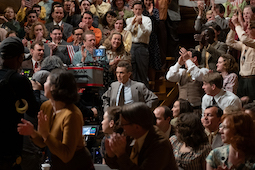
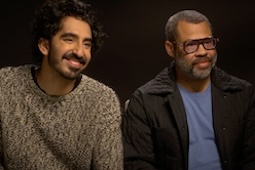
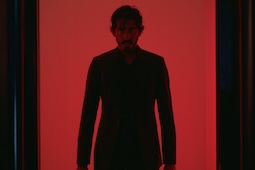
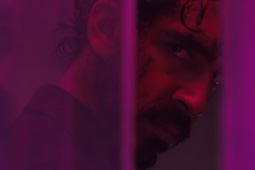
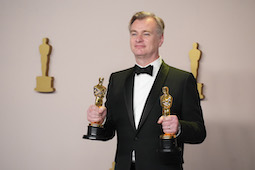
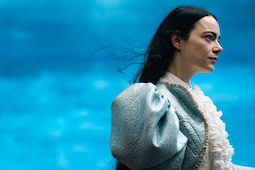

.jpg)
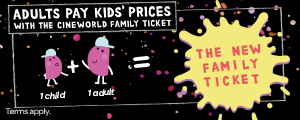

.jpg)
.png)






